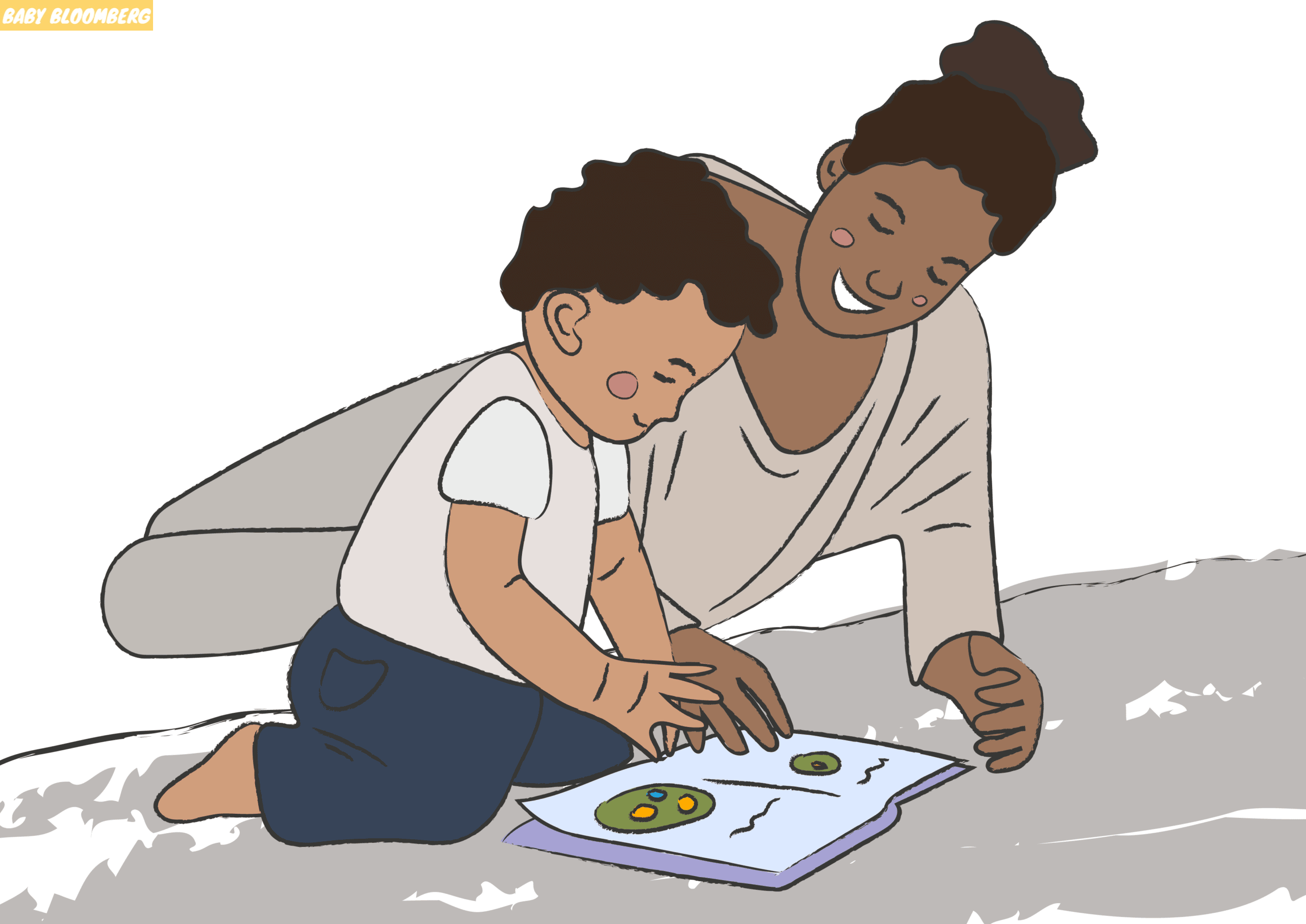Being a new parent is an exciting and overwhelming experience. From sleepless nights to endless diaper changes, the first year of parenthood can feel like a rollercoaster ride. While there’s no instruction manual for parenting, there are some essential tips and insights that can help new parents navigate this incredible journey with confidence. In this article, we will explore a comprehensive guide for new parents, covering everything from trusting your instincts to setting a good example for your child. So, fasten your seatbelts and get ready for the ride!
Get Ready for the Ride: Embracing the Joys and Challenges of Parenthood
Becoming a parent is a life-changing event. While the journey ahead may seem daunting, it’s essential to be prepared for ups and downs, laughter and tears. Embrace the changes and know that you’ll soon get the hang of it. Remember, you are not alone in this journey, and learning from others’ experiences can be a valuable tool.
Embracing Change: The Adventure Begins
Becoming a parent comes with a myriad of changes. Your daily routine is likely to be turned upside down as you adapt to the needs of your newborn. From sleep deprivation to adjusting to a new schedule, it’s crucial to be flexible and embrace the changes that come your way. Remember, each day brings new opportunities for growth and discovery.
Building a Support System: Leaning on Others
As a new parent, it’s essential to remember that asking for help is not a sign of weakness but a way to ensure the well-being of both you and your baby. Reach out to friends, family, or healthcare professionals for support. Having a strong support system in place can provide comfort, practical advice, and a much-needed break when you need it most.
Seeking Wisdom from Experienced Parents: Learning from Others
One of the best resources for new parents is the collective wisdom and experiences of those who have been through it before. Connect with other parents, join online communities, or attend parenting classes to learn from their insights. Every child is different, but hearing from others can offer valuable tips and perspectives.
Trust Your Instincts: The Power of Parental Intuition
While there is no instruction manual for parenting, your instincts will kick in as soon as you hold your newborn. Trusting yourself and relying on your intuition is essential for building a strong bond with your baby and making the best decisions for their well-being.
Developing Parental Instincts: Embracing Your Inner Guide
As a new parent, it’s natural to feel uncertain at times. However, trust that you have the innate ability to care for your little one. Your instincts will tell you when your baby is hungry, tired, or in need of comfort. Embrace these instincts and let them guide you through the journey of parenthood.
Learning as You Go: Embracing the Learning Curve
Parenting is a journey of continuous learning. Each day presents new challenges and opportunities to grow. Don’t be afraid to make mistakes or ask questions. Remember, every parent starts from scratch, and with time and experience, you will become more confident in your abilities.
Seeking Professional Advice: The Importance of Medical Guidance
While your instincts play a vital role in parenting, it’s essential to seek professional advice when needed. Consult with pediatricians or healthcare professionals to address any concerns or questions you may have. They can provide accurate medical information and offer guidance tailored to your child’s specific needs.
Exercise Patience: Navigating the Newborn Phase with Grace
The early days with a newborn can be exhausting and overwhelming. It’s crucial to remember that this phase won’t last forever and to be patient with yourself and your baby as you both adjust to your new routines. Let’s explore some strategies to embrace patience during this transitional period.
Sleep Deprivation: Coping with Lack of Sleep
One of the greatest challenges new parents face is sleep deprivation. Sleepless nights can take a toll on your physical and emotional well-being. Establishing a consistent sleep routine, taking turns with your partner for night-time feedings, and seeking support from family and friends can help alleviate the fatigue.
Practicing Self-Care: Nurturing Yourself to Nurture Others
As a new parent, it’s easy to neglect your own needs while focusing on your baby. However, self-care is crucial for your overall well-being. Set aside time for activities you enjoy, practice relaxation techniques, and lean on your support system to recharge and rejuvenate.
Establishing a Routine: Creating a Sense of Stability
Babies thrive on routine and predictability. Creating a daily schedule that includes regular feeding times, naps, and playtime can provide a sense of stability for both you and your baby. It may take time for the routine to become established, but persevere and remain consistent.
Be Open-Minded: Embracing Parenthood without Judgment
Parenthood is a journey of continuous learning and adaptation. It’s important to avoid setting unrealistic expectations for yourself as a parent. There is no such thing as a perfect parent, and constantly comparing yourself to others can lead to unnecessary stress and self-doubt.
Embracing Imperfection: Accepting Your Strengths and Limitations
Every parent has their own strengths and weaknesses. Embrace your imperfections and focus on the unique qualities that make you a loving and caring parent. Learning from your experiences, adapting to new situations, and working with your child’s individual needs and temperament will help you navigate parenthood with greater ease.
Avoiding the Comparison Trap: Embracing Individuality
Each child develops at their own pace, and comparisons can hinder their progress. Avoid the urge to compare your child’s milestones with those of others. Embrace their individuality and celebrate their achievements, no matter how big or small.
Staying Open-Minded: Learning from Different Parenting Approaches
There is no one-size-fits-all approach to parenting. Stay open-minded and explore different parenting philosophies and techniques. By incorporating various strategies that resonate with you and your child, you can create a personalized approach that suits your family’s unique needs.
Ask for Help: Building a Strong Support Network
Parenting is not meant to be done alone. Asking for help is not a sign of weakness but an acknowledgment of the importance of your well-being and your baby’s. Let’s explore the significance of seeking support from friends, family, and healthcare professionals.
Reaching Out to Loved Ones: The Importance of Emotional Support
Your loved ones are there to help and support you during this significant life transition. Whether it’s a listening ear, a helping hand, or practical advice, reach out to your friends and family for emotional support. Sharing your experiences and concerns can lighten the load and foster a sense of connection.
Seeking Professional Guidance: The Expertise of Healthcare Professionals
A healthcare professional’s guidance is invaluable during the early years of parenting. From addressing health concerns to providing guidance on developmental milestones, pediatricians can offer reassurance, advice, and medical expertise. Don’t hesitate to reach out to them for any concerns you may have.
Joining Parenting Communities: Finding Like-Minded Support
Connecting with other parents who are going through the same journey can provide a sense of camaraderie and support. Join local parenting groups, online communities, or attend parenting classes to share experiences, gain insights, and find solace in the company of others who understand the challenges you face.
Remember That Phases Pass: Embracing the Ups and Downs of Childhood Development
Children go through various stages and phases as they grow. Some stages may be more challenging than others, but it’s essential to remember that they are a normal part of development. Let’s explore how to navigate these phases with patience and understanding.
The “Terrible Twos”: Understanding Toddlerhood Challenges
The toddler years are often associated with a phase known as the “terrible twos.” During this time, children assert their independence, test boundaries, and may exhibit more challenging behavior. Stay patient, provide guidance and support, and remember that this phase will pass.
Navigating the Teenage Years: Maintaining Connection and Understanding
As children enter adolescence, they undergo significant physical, emotional, and social changes. The teenage years can be a challenging time for both parents and children. Maintain open lines of communication, provide guidance, and offer a safe and supportive environment for them to navigate this transformative phase.
Celebrating Milestones: Embracing Triumphs and Challenges
Throughout your child’s development, there will be various milestones, both big and small. Celebrate their achievements and offer encouragement. However, remember that not all children progress at the same pace. Embrace their individuality and provide support as they navigate their unique journey.
Communicate: Fostering a Strong Parent-Child Relationship
Effective communication is crucial in building a strong bond with your child. From the early stages of infancy to the teenage years, open and honest communication lays the foundation for trust, respect, and understanding. Let’s explore some strategies for fostering effective communication with your child.
Talking to Your Baby: Building Connections from Day One
Engage in conversations with your baby, even if they can’t respond verbally. Your gentle voice and facial expressions play a significant role in their social and emotional development. Narrate your daily activities, sing songs, and read books to promote language acquisition and create positive bonding experiences.
Active Listening: Honoring Their Feelings and Thoughts
As your child grows, encourage open dialogue and active listening. Create a space where they feel comfortable expressing their thoughts, feelings, and concerns. Pay attention to both their verbal and nonverbal cues, showing them that their opinions and emotions are valuable and respected.
Nonviolent Communication: Resolving Conflicts Respectfully
Conflicts and disagreements are a natural part of any relationship. Teach your child to express themselves assertively and respectfully. Guide them in resolving conflicts through active listening, empathy, and compromise. By modeling nonviolent communication, you create a nurturing environment that promotes healthy relationships.
Avoid Comparisons: Celebrating Your Child’s Uniqueness
Every child is unique, and comparing your child to others can lead to unnecessary stress and pressure. Embrace your child’s individuality and appreciate their unique strengths and talents. Encourage them to embrace their own passions and interests, and support them in their journey of self-discovery.
Supporting Their Pace: Respecting Developmental Differences
Children develop at different rates, and it’s essential to respect their individual pace. Avoid pushing your child to achieve milestones before they are developmentally ready. Offer guidance and create a supportive environment that allows them to flourish at their own pace.
Embracing Differences: Encouraging Acceptance and Inclusion
Teach your child the value of acceptance and inclusion. Help them celebrate diversity and respect others’ differences. By fostering a culture of inclusivity within your family, you lay the foundation for a more compassionate and harmonious society.
Set a Good Example: Modeling Positive Behavior
As a parent, you are your child’s most important role model. The behaviors and values you exhibit will greatly influence their own actions and attitudes. Let’s explore ways to set a positive example and foster essential qualities in your child.
The Power of Respect: Treating Others with Kindness and Dignity
Treat others with respect, kindness, and dignity. Show empathy towards others and teach your child to value the feelings and opinions of others. Encourage them to practice good manners, empathy, and consideration for those around them.
Building Character: Instilling Values of Honesty and Integrity
Instill values of honesty and integrity in your child. Be honest with them and avoid lying or making promises you can’t keep. Model truthfulness and teach the importance of taking responsibility for their actions. By nurturing their character, you empower them to become compassionate and responsible individuals.
Practicing Self-Care: Prioritizing Your Well-being
Prioritize self-care and demonstrate the importance of caring for oneself. Show your child that self-love, relaxation, and pursuing personal interests are essential for overall well-being. By modeling self-care, you teach your child the importance of prioritizing mental and physical health.
Play Together: The Power of Playtime
Playtime is not just fun but also crucial for your child’s development. Engage in age-appropriate activities and games that promote learning, creativity, and bonding. Let’s explore the importance of play and how it can enhance your relationship with your child.
Bonding Through Play: Creating Lasting Memories
Playtime offers an opportunity for you to connect with your child on a deeper level. Engage in activities that capture their imagination and encourage exploration. Create lasting memories by being present and actively participating in their play experiences.
Promoting Development: Learning Through Play
Play is essential for your child’s cognitive, social, and emotional development. Through play, they learn valuable skills such as problem-solving, decision-making, and critical thinking. Offer age-appropriate toys, games, and activities that stimulate their curiosity and foster learning.
Quality Time: Making Play an Integral Part of Your Routine
Make playtime a priority in your daily routine. Set aside dedicated time for activities that you and your child enjoy. It may be a simple game of peek-a-boo with your infant or building block towers with your toddler. Regardless of the activity, investing quality time in play strengthens your bond and nurtures their development.
Celebrating the Journey: Cherishing Precious Moments
Parenthood is a remarkable journey filled with joys, challenges, and countless precious moments. As you navigate the ups and downs, remember to trust yourself, seek support when needed, and most importantly, savor every moment with your little one. Embrace the unique experience of parenthood and celebrate the incredible bond you share.
Frequently Asked Questions
Q: How do I handle the sleepless nights as a new parent?
A: Sleep deprivation is common for new parents. Establish a consistent sleep routine, take turns with your partner, and ask for help from family and friends.
Q: How can I build a strong support network as a new parent?
A: Reach out to loved ones for emotional support, seek professional guidance from healthcare professionals, and join parenting communities to connect with like-minded individuals.
Q: How do I navigate challenging phases like the “terrible twos”?
A: Stay patient, provide guidance and support, and remember that challenging phases are a normal part of development. Embrace your child’s individuality and respond with love and understanding.
Q: What are some ways to foster effective communication with my child?
A: Talk to your baby from day one, actively listen to your child’s thoughts and feelings, and modeled nonviolent communication to resolve conflicts respectfully.
Q: How do I avoid comparing my child to others?
A: Celebrate your child’s uniqueness, respect their developmental differences, and foster a culture of acceptance and inclusion within your family.
Q: How can I set a good example for my child?
A: Treat others with respect, honesty, and kindness. Prioritize self-care and demonstrate the importance of caring for oneself. Engage in play and actively participate in your child’s experiences.
Becoming a new parent is an incredible journey filled with joy, challenges, and growth. By trusting your instincts, seeking support when needed, and embracing the unique experiences of parenthood, you can navigate this journey with confidence. Remember to cherish every moment, celebrate your child’s individuality, and set a positive example through your words and actions. Parenthood is a remarkable adventure, and you are well-equipped to embark on this beautiful journey with your little one by your side.











